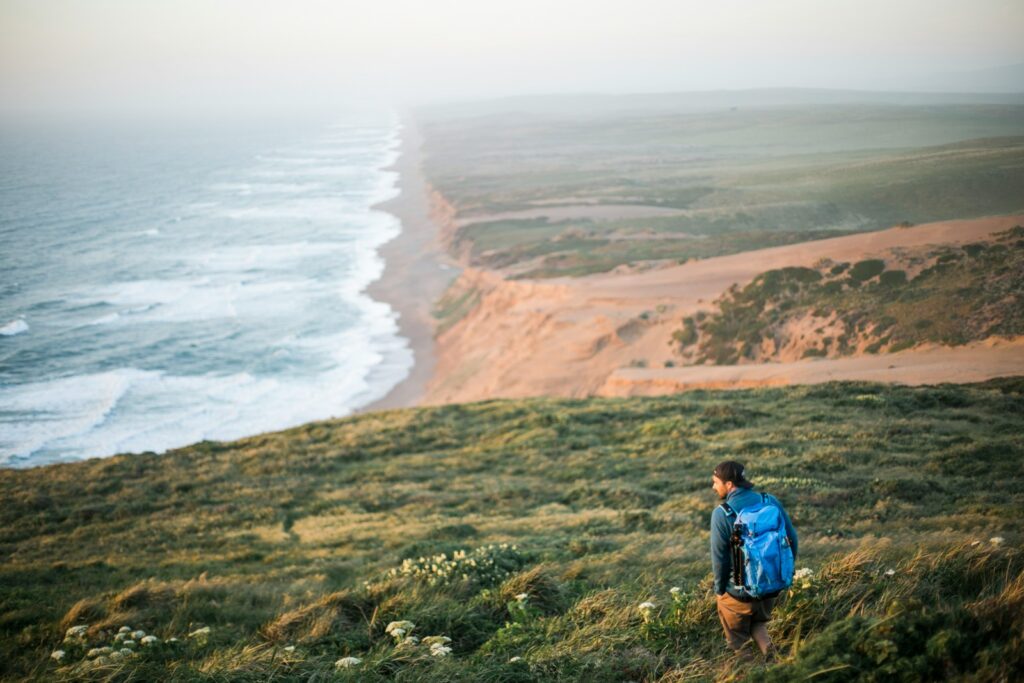Life is meant to be lived boldly, with experiences that push us beyond our comfort zones and reshape our understanding of what’s possible. A thoughtfully curated bucket list isn’t just about checking boxes—it’s about transforming your perspective, challenging your perceived limitations, and creating memories that resonate throughout your lifetime. The following twelve adventures aren’t merely activities; they’re gateways to personal evolution, offering opportunities to confront fears, discover hidden strengths, and witness the world’s breathtaking diversity. Whether you’re drawn to physical challenges, cultural immersion, or moments of profound natural wonder, these experiences promise to expand your horizons and redefine what you believe yourself capable of achieving.
1. Solo Wilderness Backpacking

Few experiences compare to the profound self-reliance required when you venture alone into the wilderness with everything you need carried on your back. Solo backpacking strips away modern distractions and conveniences, forcing you to confront both external challenges and internal dialogues you might typically avoid.
The solitude creates space for clarity and self-discovery, while successfully navigating remote terrain builds confidence that transfers to everyday life. Many who complete solo wilderness journeys report a fundamental shift in their relationship with fear, discomfort, and their own capabilities—often describing it as a before-and-after moment in their personal development.
2. Learning to Pilot an Aircraft

Taking control of an aircraft fundamentally changes your relationship with the sky and your perception of physical limitations. The process of earning a pilot’s license demands intellectual precision, emotional discipline, and the ability to make split-second decisions while managing complex systems. As you progress from tentative first flights to solo navigation across vast distances, you’ll experience a unique form of freedom coupled with profound responsibility.
The perspective gained from seeing the world from above—cities reduced to miniatures, mountains becoming mere textures on the landscape—provides a visual metaphor for how conquering your fears can transform seemingly insurmountable obstacles into manageable challenges.
3. Living Among a Different Culture

Immersing yourself in a culture radically different from your own—not as a tourist but as a temporary resident—expands your understanding of humanity in ways that can’t be achieved through brief visits. Commit to at least three months in a place where you must navigate different values, communication styles, and daily rhythms.
The discomfort of cultural adaptation forces cognitive flexibility and emotional resilience as you learn to function effectively outside familiar frameworks. This extended cultural immersion typically triggers profound self-awareness as you recognize which aspects of your identity are culturally constructed versus intrinsic to your core self, often leading to lasting shifts in your worldview and personal priorities.
4. Swimming with Whale Sharks

Finding yourself alongside a whale shark—the ocean’s largest fish, reaching lengths of up to 40 feet—creates an encounter with the sublime that few other experiences can match. Despite their intimidating size, these gentle filter-feeders allow humans to swim alongside them in a rare moment of peaceful coexistence between species. The perspective shift is immediate and visceral: your body, normally the “right size” in your daily environment, becomes minuscule against these magnificent beings.
Many swimmers report a profound emotional response that transcends typical recreational experiences, often describing feelings of cosmic insignificance paired paradoxically with deep connection to the natural world—a combination that frequently catalyzes reflection on human impact and environmental responsibility.
5. Completing an Ultra Endurance Challenge

Ultra endurance events—whether 100-mile trail runs, multi-day adventure races, or long-distance triathlons—reveal capacities within yourself that remain hidden until you push far beyond conventional endurance boundaries. These challenges deliberately take participants to their breaking point, creating transformative opportunities to discover what remains when your body insists it can’t continue.
The training alone restructures your relationship with discomfort, teaching you to differentiate between productive suffering and destructive pain. Crossing the finish line of an ultra event often represents less a physical achievement than a psychological breakthrough—concrete proof that your perceived limitations were largely self-imposed constructs rather than actual boundaries.
6. Experiencing Zero Gravity

The sensation of weightlessness fundamentally challenges our most basic physical relationship with the world—gravity’s constant pull that shapes every movement we make. Commercial zero-gravity flights now make this once astronaut-exclusive experience accessible to civilians, using parabolic flight patterns to create 20-30 second intervals of weightlessness. Your brain and body, evolutionarily adapted to Earth’s gravitational field, experience profound recalibration as familiar movements produce unexpected results and spatial orientation becomes temporarily meaningless.
Participants consistently describe the experience as consciousness-altering, providing tangible proof that reality as we perceive it is heavily filtered through physical constraints that can be transcended—a powerful metaphor for other limitations we unconsciously accept.
7. Ice Climbing a Glacier

Scaling the vertical face of a glacier with ice axes and crampons places you in direct confrontation with one of nature’s most imposing and dynamic features. Unlike rock climbing, ice climbing involves ascending a medium that’s constantly changing, requiring heightened awareness and adaptive decision-making with each placement of your tools. The physical demands combine with the mental challenge of managing risk in an environment where conditions can shift rapidly, creating a state of focused flow rarely achieved in everyday life.
Reaching the top of a glacial ice wall offers a unique perspective—both literally, as you survey the frozen landscape, and metaphorically, as you recognize your capacity to overcome environments that initially appear hostile to human presence.
8. Public Speaking to a Large Audience

For many people, the prospect of addressing hundreds or thousands of listeners triggers more fear than physically dangerous activities, making successful public speaking a profound limit-breaking experience. The vulnerability of standing exposed before a sea of faces, with your ideas, voice, and presence open to immediate collective judgment, creates a unique psychological challenge. Preparation for major speaking engagements often forces confrontation with deep-seated insecurities about social rejection and personal value.
Those who master this fear frequently describe a transformative expansion of their comfort with vulnerability in all areas of life, reporting that after successfully commanding a large audience’s attention, many previously intimidating interpersonal situations lose their power to provoke anxiety.
9. Living Off-Grid for a Month

Disconnecting completely from modern infrastructure—generating your own power, sourcing water, producing or foraging food, and managing waste without municipal systems—radically transforms your relationship with consumption and necessity. This temporary return to direct responsibility for meeting basic needs awakens dormant self-reliance capacities and clarifies the difference between authentic requirements and habitual conveniences. Most participants report heightened awareness of resource usage that persists long after returning to conventional living, alongside a profound shift in confidence regarding survival capabilities.
Perhaps most significantly, the experience typically resets neurological baselines for stimulation and satisfaction, allowing simpler pleasures to register more meaningfully against a quieter background than our hyper-connected lives typically allow.
10. Freediving in the Deep Ocean

Descending into ocean depths on a single breath challenges not just physical limitations but primal psychological barriers around breathing, pressure, and the oceanic unknown. Unlike scuba diving, freediving strips away technological mediation, creating direct confrontation with the body’s survival instincts and the mind’s capacity to override them through training and discipline. Advanced freedivers experience the mammalian dive reflex—a physiological state where heart rate drops dramatically and blood redistributes to vital organs—demonstrating the body’s hidden capacities when pushed to extremes.
Beyond physical adaptation, many practitioners describe profound meditative states achieved during deep dives, reporting a unique clarity and presence that comes from the complete surrender required when you venture into depths where your next breath awaits only at the surface far above.
11. Completing a Creative Masterwork

Committing to a significant creative project—whether writing a novel, composing a symphony, or producing a documentary film—requires confronting limitations in discipline, vision, and vulnerability that many never challenge. Unlike brief creative efforts, masterworks demand sustained attention through inevitable periods of doubt, technical challenges, and creative blocks that test your perseverance and self-belief. The psychological journey typically includes confronting perfectionism, managing the gap between vision and current ability, and developing resilience against both internal criticism and the prospect of external judgment.
Those who complete such projects often describe fundamental shifts in their relationship with failure and iteration, along with a newfound capacity to trust process over immediate results—perspectives that transform approaches to challenges in all life domains.
12. Witnessing the Aurora Borealis

Standing beneath the dancing lights of the Northern Lights produces a rare combination of awe, humility, and cosmic connection that many describe as spiritually transformative regardless of their belief system. Unlike many bucket list experiences that test physical or psychological limits through challenge, aurora viewing confronts limitations through overwhelming beauty that transcends human scale. The unpredictable, ethereal nature of the phenomenon requires surrender to nature’s timeline and conditions, often involving patient waiting in extreme cold and darkness with no guarantee of success. When the lights do appear, dancing across the Arctic sky in impossible colors, witnesses frequently report a profound perspective shift about humanity’s place in the universe and a recalibration of what constitutes meaningful experience—a reminder that transcending limits sometimes comes through receptivity rather than conquest.
Life’s most profound transformations often arrive through experiences that push us beyond familiar boundaries. These twelve bucket list activities represent more than adventurous checkboxes—they’re invitations to discover versions of yourself that remain hidden until challenged by extraordinary circumstances. Whether you pursue one or all of these experiences, the true value lies not in social media documentation or bragging rights, but in the lasting internal shifts that occur when you voluntarily step beyond comfortable limitations. In transcending these self-imposed boundaries, you may discover that the most important journey isn’t measured in miles traveled or heights scaled, but in the distance between who you were before and who you become after accepting the challenge to redefine what’s possible in your life.

